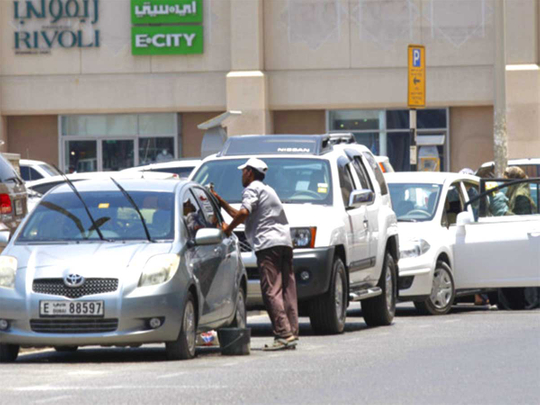
UAE is a safe and secure country, and a big part of that is because of laws and regulation protecting its residents and guests. While most laws are pretty much about common sense, there are also some that are culturally significant to the region. These are some that could accidentally land you in legal and financial trouble (in fines).
Crossing streets
You might be in a hurry, and it might be really sunny and hot – but a random illegal crossing could cost you. While it is extremely dangerous to do so, you could also land up paying a fine of Dh400. Use the zebra crossing or metro bridges and stations to cross roads.
Photography
You might consider yourself a good social photographer, but taking or publishing pictures of people without their explicit permission is considered illegal in the UAE. It is considered a breach of privacy and you could end up in some serious legal trouble if the said person in the photograph raises an issue at any point. And everyone in this day and age knows, anything you post online stays online – so post carefully. Fines for this cybercrime could range from Dh150,000 to Dh200,000 along with jail time.
Texting in foul language
From crude language to certain emoticons that signify swear words, if a recipient of your message decides to take your texts to the police, you will be liable to pay fines. In worst case scenarios, it could even lead to jail or deportation. Control your emotions no matter how riled up you get – it could cost you a lot more than you bargained for.
Hand gestures
In pop-culture across the globe, hand gestures denoting various things have become common-place but no so in the UAE. If someone complains about your behaviour and crude hand gesture, you become liable to legal punishment. Even if you think something is a common gesture and harmless, be sensitive to the cultural viewpoints of the UAE and the region.
Washing your car
Did you know that washing cars in public paid or free parking spaces, or in front of buildings is illegal in the UAE? While it extends to the aesthetic of communities in the country, the larger purpose is water conservation and sustainable living. So, go to nearby car wash experts or use damp-cleaning methods that don’t drip.
Littering
It is very easy to chuck out a toffee wrapper or cigarette butt, but this ‘simple’ act could cost a lot, both for you (in fines) and the environment. The UAE enforces strict laws on littering and it helps if you inculcate the habit in your kids and younger siblings as well.
A bounced cheque
You may have forgotten about it or not managed to inform someone about insufficient funds – but the minute a cheque bounces, it becomes a criminal offence and could escalate depending on the amount, your finance situation and other factors. Keep a record of all the cheques you write, no matter how small – and in case of cancellation, follow up until you get the said cheque back or the cheque has the cancellation stamp over it.
Raise money for charity online
In all countries, it is widely respected when you help raise money for a charitable purpose and it is no different here, unless you do it illegally. According to UAE laws, you are not allowed to – as an individual or a group – raise money online (or offline) for any cause or charity. You should only go through registered volunteer and charity organisation based in the UAE and leave the fundraising aspect to them.
Sharing a secret
It might not seem like much – a whispered personal secret about a mutual friend or a conversation about some information you got at work. The secret could cost you fines and a jail term if the person or company decides to complain against sharing of the information. Privacy, defamation and confidentiality are taken very seriously under UAE laws. You are also not allowed to publish information or make false defamatory or accusatory statements that could raise public hatred or contempt against an individual or enterprise.










